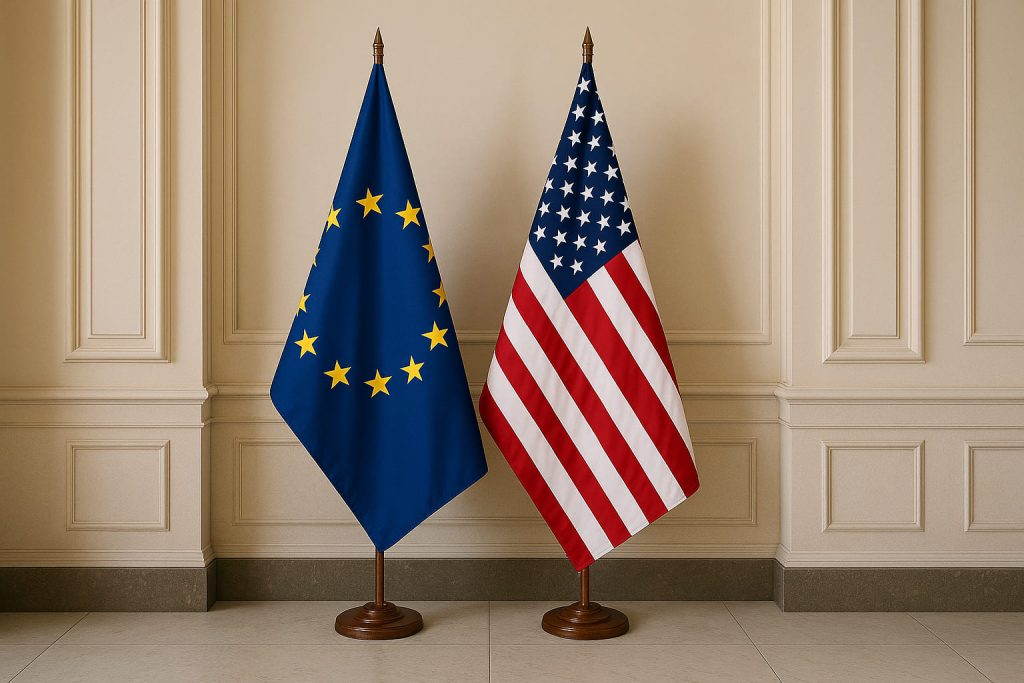L’Europe face aux sanctions américaines, quelle souveraineté ?

Si l’on en croit le dernier discours de Jean-Claude Juncker sur l’État de l’Union, en septembre 2018 : « L’heure de la souveraineté européenne a définitivement sonné ». Comme pour lui donner raison, Donald Trump l’affirmait quelques semaines plus tard devant l’Assemblée Générale des Nations Unies : « Responsible nations must defend against threats to sovereignty ».
Et pourtant, le 4 novembre prochain, les Européens seront frappés par de nouvelles sanctions américaines extraterritoriales à la suite du retrait, décidé par le Président américain, de l’accord nucléaire avec l’Iran, dit JCPOA (Joint Comprehensive Plan Of Action). Il en va de même avec la Russie à partir du moment où les sanctions américaines vont au-delà de celles qui avaient été décidées conjointement avec l’Union européenne. Bien maigre souveraineté !
Par extraterritorialité, on entend généralement l’utilisation unilatérale par un État des instruments pris en vertu de ses compétences souveraines pour faire appliquer sa propre loi, dans un territoire autre que le sien, pour des actions commises hors de son territoire, par des entités ou personnes relevant d’autres pays. C’est bien le cas lorsque les États-Unis appliquent à des entités et personnes non-américaines des normes et des sanctions décidées par eux seuls. L’entreprise ou le particulier dit coupable est puni au moyen de l’un quelconque de ses liens de rattachement à la compétence juridictionnelle des États-Unis : par exemple, une transaction en dollar ou une filiale sur le territoire américain.
Dans ces conditions, l’Union européenne doit-elle, au nom de sa souveraineté, remettre en cause cette pratique que se sont octroyée les États-Unis de décider seuls pour le reste du monde. Si oui, comment ? Si non, que faire ?
Ce texte est le produit d’un atelier qui a réuni Marie-Hélène Bérard, banquier-conseil, Farid Fatah, doctorant en droit, Pascal Lamy, président emeritus de l’Institut Jacques Delors, Louis Schweitzer, président d’honneur de Renault et Pierre Vimont, senior fellow Carnegie Europe.





